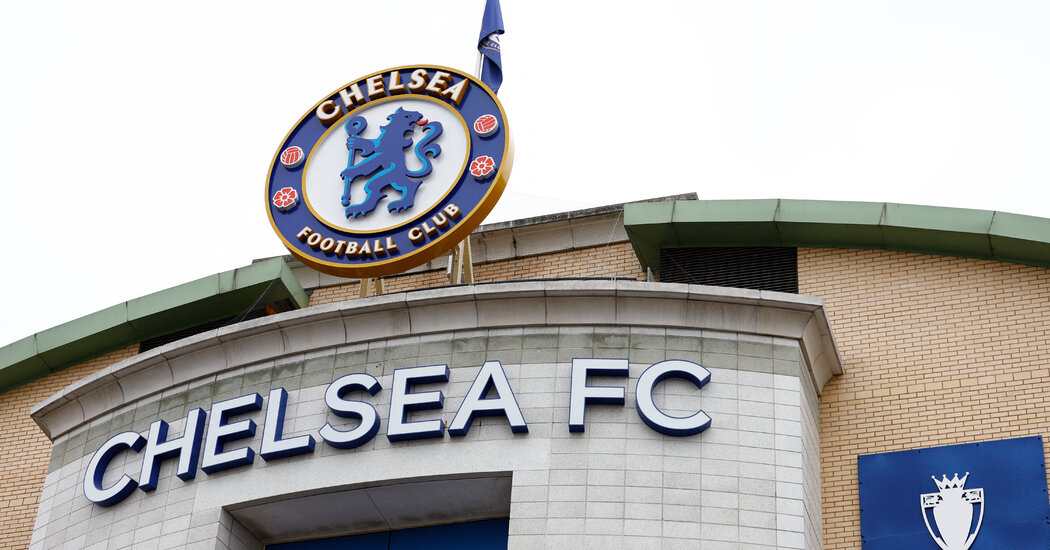
Almost a year after one of England’s richest and most decorated soccer teams opened an investigation into a senior executive accused of workplace bullying so severe that several staff members said colleagues took mental health leave to escape it, the team, Chelsea F.C., confirmed that the executive has left the club.
The accusations against the executive, the former Chelsea director of marketing Gary Twelvetree, were outlined in a report in The New York Times last June that detailed mounting concerns about a toxic workplace culture inside the department he led. The Times article was based on interviews with almost a dozen Chelsea employees who described how being humiliated and berated in front of colleagues had become commonplace in the club’s marketing department.
Chelsea declined to comment on any aspect of its investigation but did confirm that Twelvetree no longer worked at the club. Twelvetree did not respond to telephone and text messages requesting comment.
He had not returned to the team’s offices at its Stamford Bridge stadium since the allegations against him surfaced in the Times article, team employees said, but remained on the payroll for months until his exit. Several employees said the team’s failure to inform them of the findings of its investigation had only created new frustration inside the club.
The pressure of working under Twelvetree’s leadership led multiple employees to quit their jobs. Others took medical leaves that in some cases lasted months. Several of the employees came forward after the death in January 2022 of a former well-liked member of the department, Richard Bignell, who killed himself after being forced out at Chelsea.
While suicide is a complex issue and it is unknown if other factors played a role, Bignell’s death stunned many of his former colleagues. Speaking with family members at a memorial service for him early last year, a group of them said they were convinced that Bignell, the married father of 8-year-old twin daughters, had died because of events at Chelsea. A coroner’s report had seemed to concur, stating after Bignell’s death that he had been “deeply troubled by anxiety, depression and despair following the loss of his job.”
Months after his death, Chelsea was under new ownership, with an American-led group having acquired the club from its longtime owner, the Russian billionaire Roman Abramovich. In July, the new owners said the club would conduct an investigation into the accusations, led by outside lawyers, to get a clearer picture of how the marketing department of one of the world’s most well-known sports teams had become so dysfunctional and marked by unhappiness, intimidation and fear.
“The club’s new board believes strongly in a workplace environment and corporate culture that empowers its employees and ensures they feel safe, included, valued and trusted,” the club said at the time. No replacement for Twelvetree was named, and in his absence the marketing operation was directed by consultants from Viral Nation, a company in which a Chelsea co-owner, Todd Boehly, is an investor.
It is unclear how many people were interviewed by investigators looking into the workplace claims, or how those people were selected. Interviews began shortly after the club issued its statement in July and lasted several months. Some former staff members told The Times that they had to reach out to the club to ask to be included as part of its process. Others were contacted directly.
One former club executive said she spoke with a lawyer last September and was allowed “the opportunity to say what I needed to say” without being steered in any particular direction.
She declined to be identified because of concerns about future employment in the soccer industry. And while she said she was pleased to learn there had been a resolution to the matter, she also noted there had been several missed opportunities by the previous management to correct the situation.
After several complaints from staff in the marketing department, for example, Chelsea’s former leadership hired outside consultants to undertake a “cultural review” of workplace practices. But the review was to be led by Twelvetree, who had been the focus of many of the complaints. That decision incensed many former employees, and several who contributed to the monthslong process said it was unclear if it was ever completed.
The more recent review also dragged on for months, employees said. Beyond the departure of Twelvetree, they said little has been said about what was learned. The club declined to comment on whether the investigation had been completed or if any changes had been made as a result of its findings. Chelsea would only confirm that Twelvetree had left the club, without providing details of the terms of his exit.
His quiet departure was in stark contrast to other recent high-level moves at Chelsea, many of which were marked with a statement or news release. In the last few months alone, Chelsea has heralded the arrival of a new chief executive and a new head coach — its fourth manager since the American-led takeover last year — and a redeployment of leaders in its development and recruitment departments.
Away from the field, Chelsea had been in contact with Bignell’s family over compensation, but the status of those talks remains unclear. The family continues to receive bereavement counseling, according to friends, and has taken part in fund-raisers for his children. Another one is planned for next month at the stadium of Wycombe Wanderers, a lower-league team that Bignell supported.
If you are having thoughts of suicide, the following organizations can help.
In the United States, call or text 988 to reach the National Suicide Prevention Lifeline or go to SpeakingOfSuicide.com/resources for a list of additional resources.
In Britain, contact Samaritans at 116-123 or email [email protected]. Calls are free and confidential. Or call Papyrus at +44 800 068 4141 (9 a.m. to midnight), or message Young Minds: text YM to 85258. You can also find a list of additional resources on Mind.org.uk.